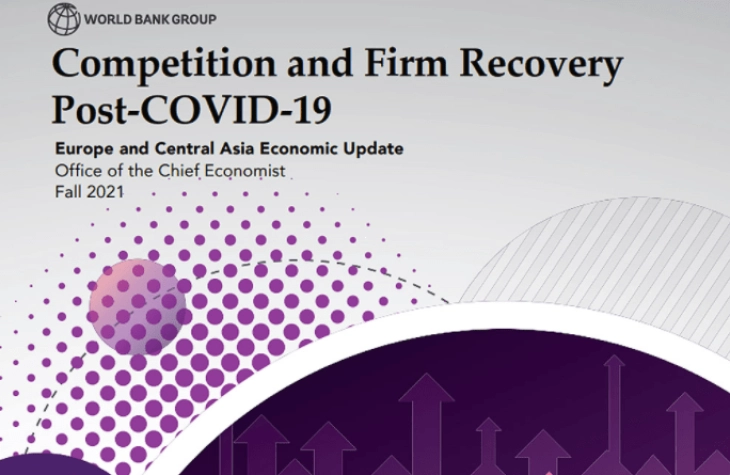World Bank improves North Macedonia's 2021 economic growth forecast

Washington, 6 October 2021 (MIA) - The World Bank forecasts GDP growth in North Macedonia to increase from 3.6 percent to 4.6 percent in 2021, as a result of positive growth of 5.2 percent in the first half of the year and after increased private consumption, the influx of investments and higher government consumption in Q2.
The World Bank forecasts rapid growth and increased competition after COVID-19 pandemic in its Europe and Central Asia Economic Update, Fall 2021 report published on Tuesday.
Concerning the economy in North Macedonia, the COVID-19 crisis reversed recent progress in poverty reduction; it is estimated that poverty increased between 1 and 4 percentage points in 2020. Support measures introduced by the government helped alleviate the impact of the pandemic on poverty. The economy resumed growth in 2021 helped by robust external demand and unlocked private consumption, reads the World Bank report.
Exports and imports increased as well, with the latter growing faster thereby worsening the trade balance. On the production side, growth was observed in nearly all sectors, given the low base effect, with the fastest recovery occurring in trade, transport and tourism, manufacturing, and ICT, reads the report.
“Economic growth is expected to rebound to 4.6 percent in 2021 returning to the prepandemic output level by year-end. The baseline scenario is built on the assumptions that the pace of immunization continues, there are no further lockdowns in 2021, consumer and investor confidence remain high, and external demand continues to be supportive,” the World Bank said.
According to the World Bank report, growth is expected to continue in 2022 as the economy gradually starts to stabilize. Poverty is projected to resume its decline modestly as expected economic growth rebounds in 2021.
Fiscal deficit is expected to very gradually decline, following the latest plans of the government to ramp up capital spending. Over the medium term, public and publicly guaranteed debt will remain on the rising path reaching 65 percent of GDP by 2023, the report reads.
As the recovery takes hold, the authorities will need to boost tax compliance, restructure and reprioritize spending, address long-term bottlenecks and enhance efficiency of the management of public finances. To boost potential growth, the country needs to redirect its attention to structural and institutional reforms, reads the World Bank report.







